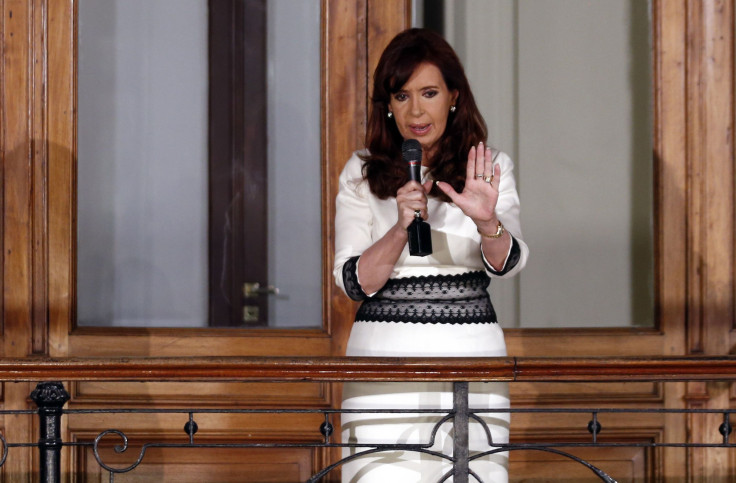Argentina's Economy Set To Weaken Further, Government Figures Dubious, Say Economists

Argentina’s government released some hopeful economic statistics this week, with numbers showing that the economy climbed out of recession in the last quarter. But with skepticism over the numbers, combined with a free-falling peso, in light of Argentina’s debt dispute with holdout creditors, economists still have a grim outlook for Latin America’s third-largest economy.
Official figures released Wednesday showed GDP growing 0.9 percent in the second quarter, up from a contraction of 0.5 percent in the quarter before. That’s a notable divergence from many economists’ estimates, which had predicted the economy to contract, and it has revived suspicions about the trustworthiness of the government’s figures. It was only in February that President Cristina Fernandez de Kirchner launched a new consumer price index under pressure from the IMF and complaints that the government had been inflating performance numbers. But even though those initial numbers were deemed to be fairly realistic, analysts are skeptical of the latest statistics.
“The fact remains that the same authorities that were [working] at the statistics office during the alleged manipulation are still there,” said Ignacio Labaqui, a senior analyst with consulting firm Medley Global Advisors. “And the fact that private estimates differ so much from the figures that are being reported suggests that this data is not totally reliable.”
“I have no more confidence in the numbers,” said Fausto Spotorno, an economist with the Buenos Aires-based Orlando Ferrers and Associates consulting firm, in an interview with Reuters. His firm had estimated a 0.8 percent contraction for the quarter. Bloomberg’s survey of forecasts from 10 economists had predicted that GDP would shrink by 0.4 percent in the same period.
Argentina’s economy is continuing to reel from the aftermath of the government’s debt dispute with holdout creditors, and faces a shortage of foreign cash, a weakening peso and soaring inflation. The black market rate for dollars -- around 14.72 pesos per dollar -- has veered away from the official exchange rate of 8.40 pesos to the dollar, stoking fears of a second devaluation after the government initiated a 20 percent devaluation in January. Meanwhile, Argentina is relying more heavily on interventionist policies, most recently through a controversial “supply law” to set bars on consumer prices of goods and set profit margins for companies.
Many economists still project a gloomy outlook for the year; London-based firm Capital Economics predicts a 2 percent GDP contraction for 2014, while JPMorgan Chase & Co. estimates it will shrink by 1.7 percent.
But fears of a ripple effect across the region are overblown, analysts say. “This is not like in 2001, when Argentina was a major player among emerging markets,” Labaqui said. “Now the impact is limited; it’s purely domestic.”
But still, Labaqui said, internal tensions will likely pile up if Argentina is unable to settle its debt disputes and the economy continues to stall. “Increasing social and labor conflict should be expected as a result of economic stagnation,” he said.
© Copyright IBTimes 2024. All rights reserved.












